Comparative literature is interdisciplinary, drawing on knowledge from history, anthropology, sociology, area studies, and more. Thus, you may find that you need to research in areas other than the strictly literary, as you put literary works into their appropriate social and historical contexts.
On the left side of this page, I've included links to other guides that you may find helpful (or you could take a look at the whole list of them), but I'll provide a few pointers here.
Note that even if you are planning to focus mainly on historical and social research, it's still probably a good idea to start by taking a look at the literary criticism that's out there, if only to see whether other critics have already been doing historical (for instance) research about the work in question.
The Library holds some resources that cover many different disciplines. These can be useful if:
In such a case, I'd recommend starting with:
A few of the databases mentioned as helpful for research on literature ... are in fact multidisciplinary, and may be helpful in many other types of research. In particular:
JSTOR provided expanded access during the pandemic (June 2020-June 2023). Expanded access expires on June 30, 2023. CUNY will reinstate that access beginning in January 2024.You may review the Electronic Resources Status Dashboard for updates. Questions? Email: access-support@qc-cuny.libanswers.com or Open a Ticket!
There are times when a more specialized resource will serve you best. Many subject-specific databases include specialized search features, well suited for helping you search for exactly what you need. They may also include more helpful subject terms.
For instance, if you were searching for abolitionism in one of the history databases, you might notice a list of useful words (subject terms) listed under the article's title, like this:

This means that in this database, there is a specific term to talk about abolitionism: antislavery movements. If you search under this term, you should be able to find everything on that topic, without having to worry about other ways of expressing the same idea.
Also, unlike resources such as OneSearch and JSTOR, many of the specialized resources don't limit to what we have immediately available here. If you're willing to request items using Interlibrary Loan, this can be a really helpful way of finding exactly the resource you need.
Historical context can be key in understanding a work (and vice versa), so history is often useful to your work in comparative literature.
If you are interested in secondary sources -- that is, scholarly works about history, written by historians -- you might want to check JSTOR and Project MUSE, but you might also consider these databases:
These databases provide the option to search by historical period. Note that this is very different from the publication date searching that most databases provide. You can find articles about a specific time period, which can otherwise be quite difficult to search.
For instance: you might be interested in the history of anti-slavery movements in the United States, which were different in the 18th century than they were in the 19th. You'd probably use America: History and Life, and if you wanted to focus on the period just prior to the Civil War, you could use the "Historical Period" search feature to limit to articles that cover it, like this:
If you were doing a search like this in a database like JSTOR, you couldn't limit by date in this way, because you can't predict what dates an author might have chosen to reference. Instead, you'd need to find another way to express this idea; for instance, you might need to refer to specific people or groups involved in the movement to anchor your search to a particular time period.
History may also involve the use of primary sources, which you can find on another tab.
Literary works often exist in conversation with other types of artistic achievement, and you might be interested in looking at movements or historical moments that encompass literature but also the visual arts, music, and so on.
If you're interested in types of creative production other than the strictly literary, you would probably still consult JSTOR, Project MUSE, and Humanities Source, but you might also be interested in resources like:
History aside, you may be interested in understanding a work within a broader (or a current!) social context.
If you're interested in the social context in which your work lives, I'd probably recommend starting with something like OneSearch or Academic Search Complete, but you may also find the following interesting or useful:
